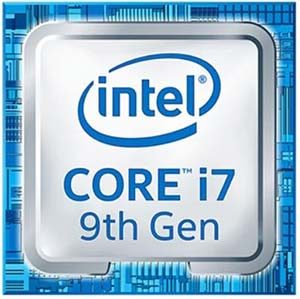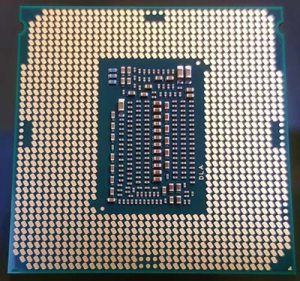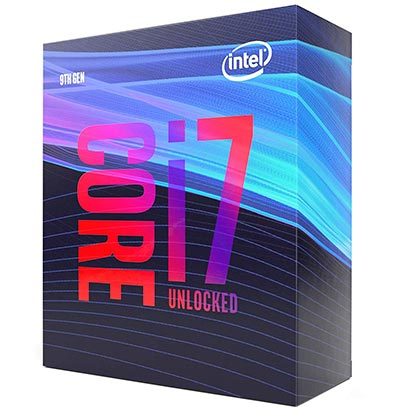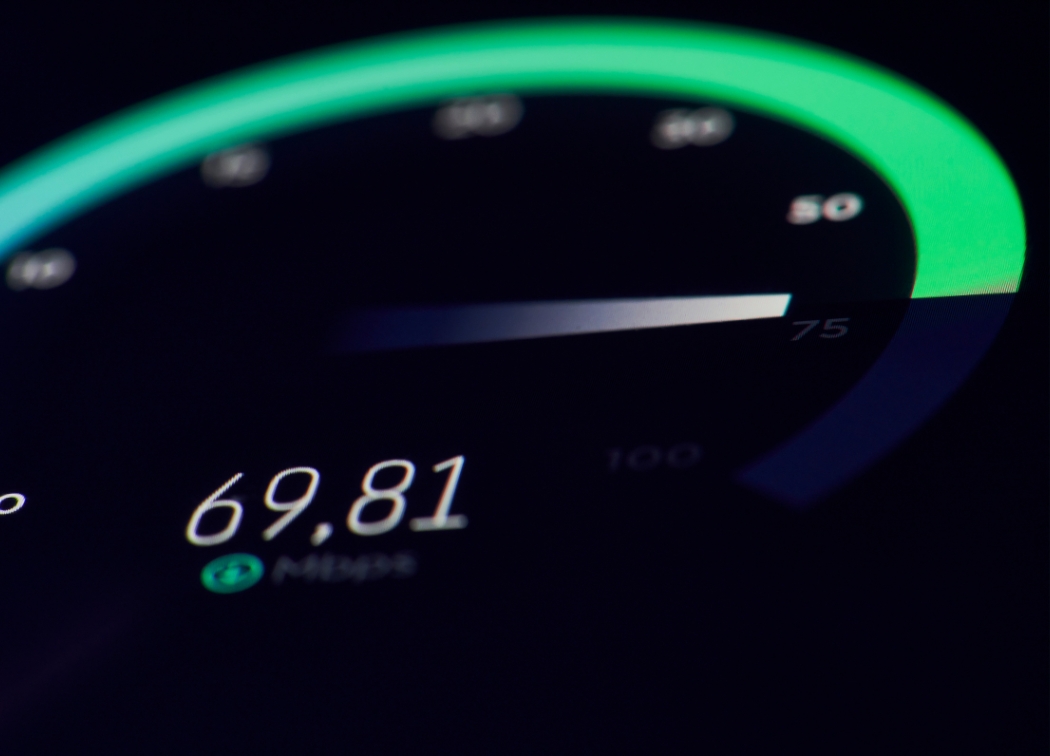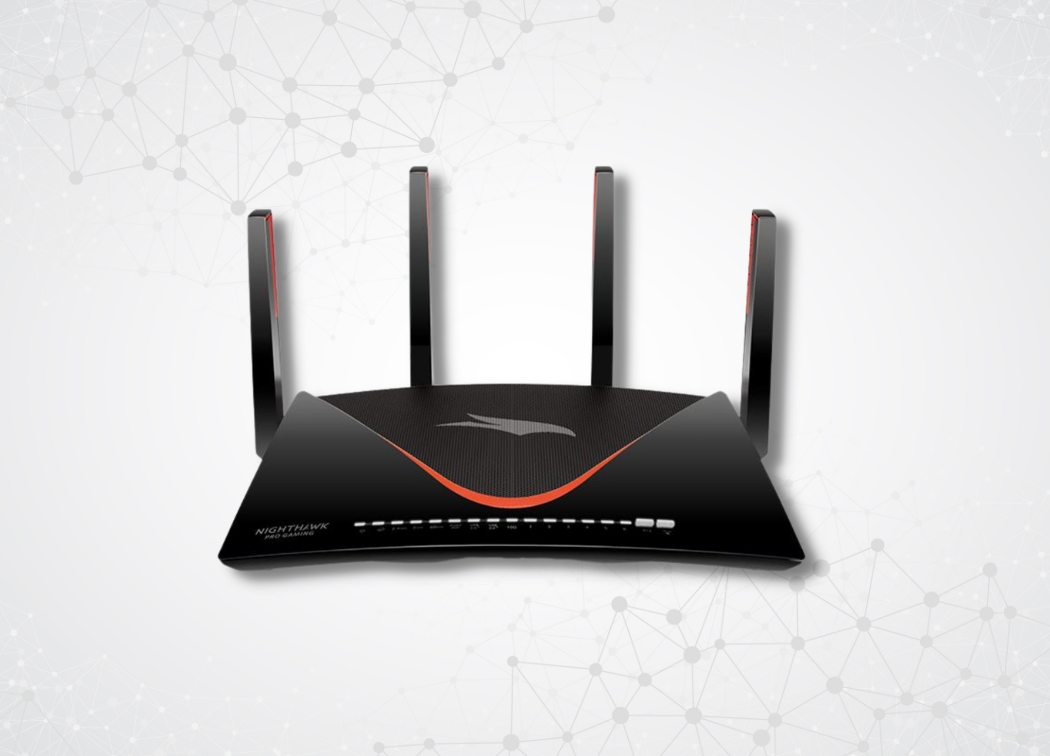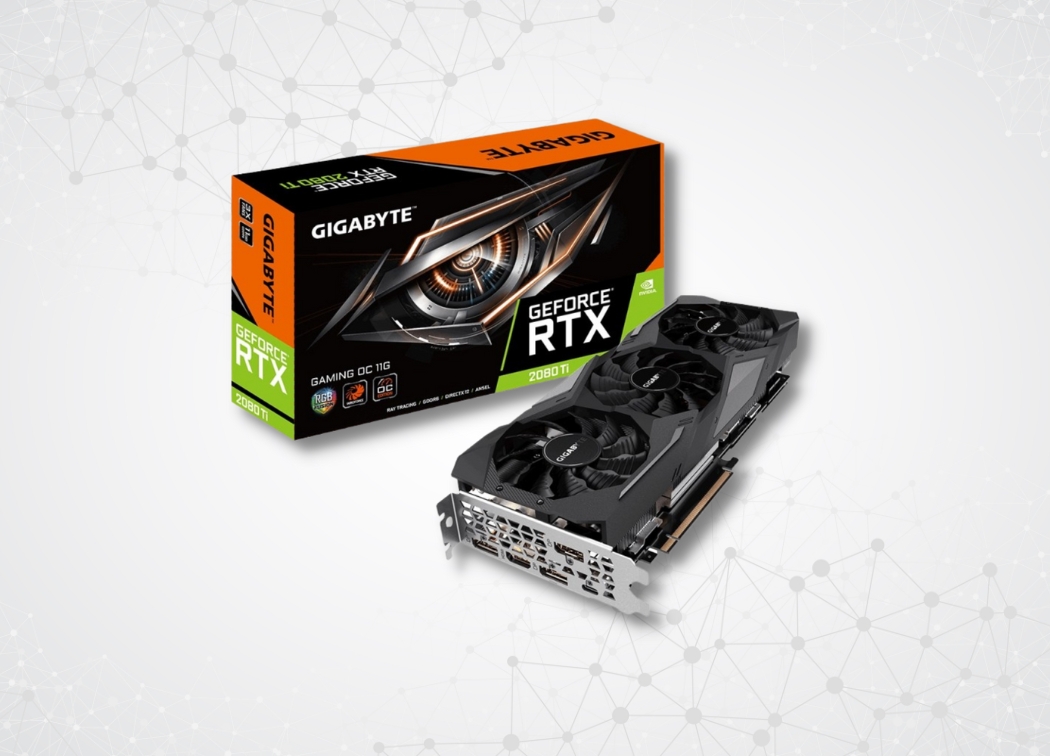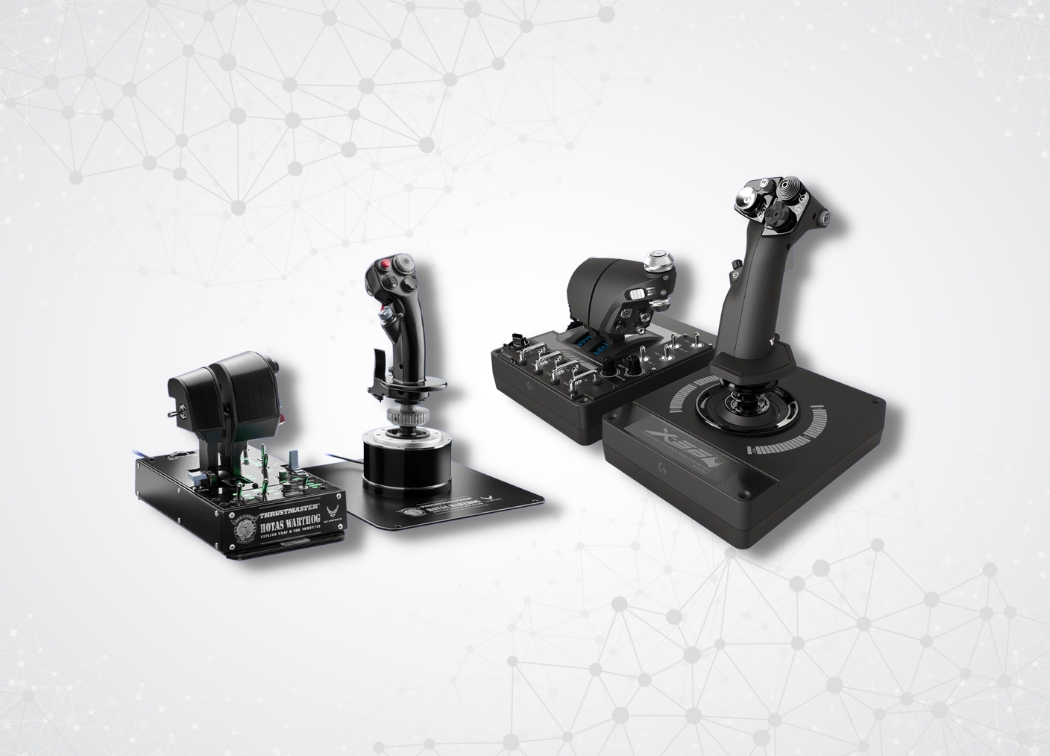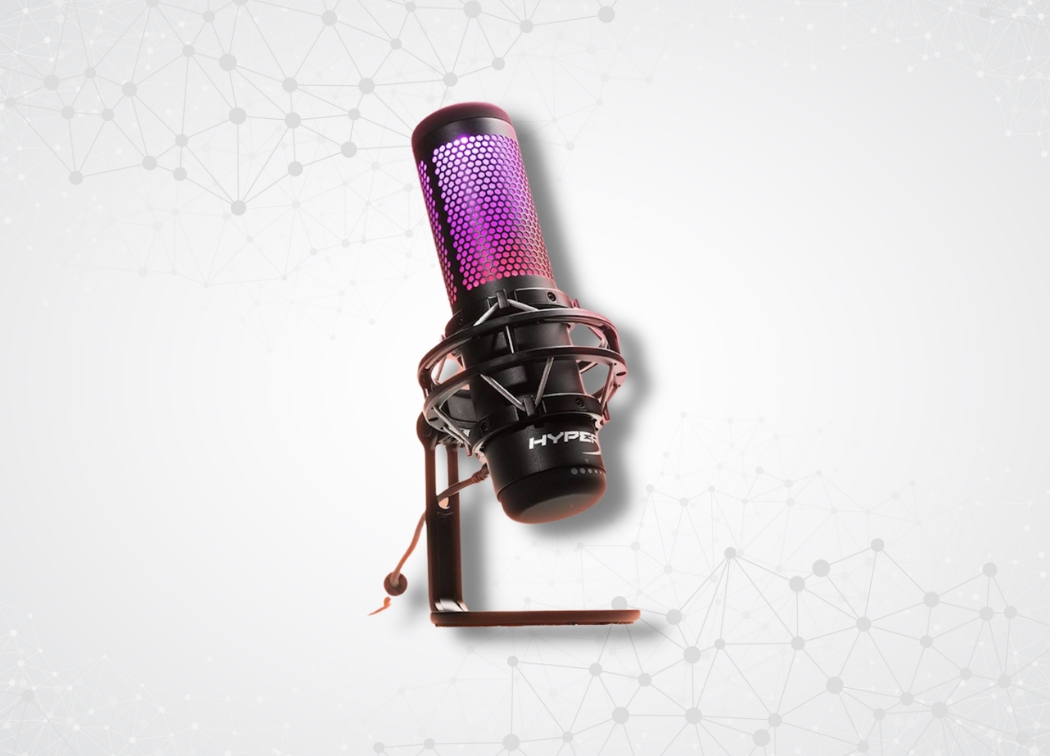Intel’s Core i7 9700K is the most anticipated release since AMD’s Ryzen hardware, and we were keen to see if this CPU met the hype.
The Intel Core i7 9700K is one of only three new 9th Generation CPU’s available right now, and the company’s successor to the Core i7 8700K CPU.
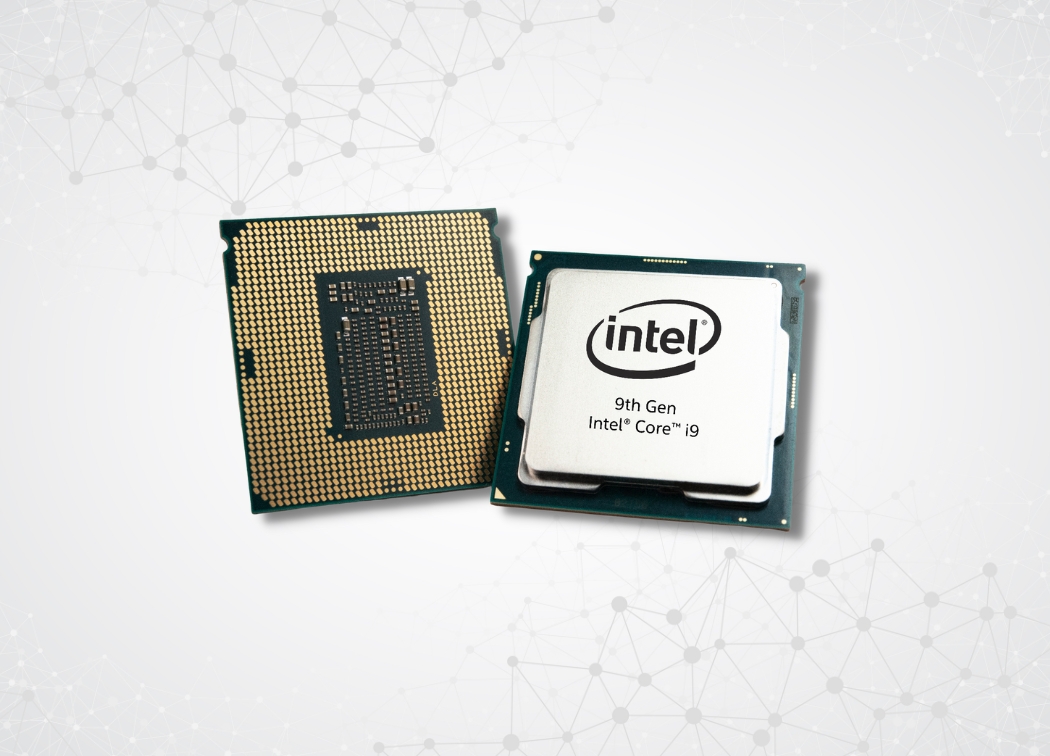
Quick Look
- 8 Threads and 8 Cores.
- 12MB Cache with 3.60 GHz up to 4.90 GHz.
- Compatible with Intel 300 Series Chipsets and Motherboards.
- Supports Intel Optane Memory.
- Intel UHD Graphics 630.
Launched alongside Intel’s i9 9900K and i5 9600K, these ninth-generation processors fought off the production shortfall with overcapacity of the 14nm fabs.
Intel confirms in the media that it intends on launching the 10nm mainstream desktop CPU’s toward the end of 2019. These will come with the codename; Intel Sunny Cove.
As a result, these could be the last high-end gaming chips to utilize the “Skylake” microarchitecture.
With the launch of the Ryzen series of CPU’s, AMD is pressing Intel’s buttons, taking the lead in the 9th gen CPU race.
For years, Intel dominated the market with its 4-core 8-thread products that became the industry benchmark.
However, with the release of AMD’s Ryzen, Intel quickly decided to scale things up to meet the new tech on offer from AMD.
As a result of the competition, Intel found itself deeply embedded in the core-vs-core race. In an attempt to re secure dominance in the market, Intel has released the 9th gen i9 9900K, i7 9700K, and the i5 9600K.
Introducing the i7 9700K
Intel did their very best to match the advent of the AMD Ryzen series, and it seems they have a winner with this chip.
The i7 9700K features 8-cores that provide extraordinary processing power, more than doubling the efficiency of the Skylake i7 6700K.
No Hyper- Threading?
Although, the i7 9700K keeps the same 8-threads available in the 6700K, Intel chose to leave out the signature feature of the 6700K – Hyper-threading.
However, they still managed to double the processing power available.
The chip manufacturer decided to leave hyper-threading for the spec list of the i9 9900K instead.
While hyper-threading may not feature on the 9700K, it’s cores that count, remember?
The additional processing power available in the 9700K makes it more than capable of handling anything a gamer can throw at it. Even the most processing-power-hungry games will run smoothly on the 9700K with no CPU bottleneck.
When we look at the specs, the performance, and what’s necessary for gaming applications – we find that the 9700K might offer too much output. So much so that the difference between the i7 8700K and the 9800Kis negligible during gameplay.
Most gamers will suffice with the cheaper 6-core, 12-thread 8700K, without needing to upgrade to the new 9th generation chips.
Intel Core i7 9700K Specs
We know that this is the part you’ve all been waiting for, and without further ado, let’s dive into the tech specs of this 9th generation processor.
With the introduction of AMD’s Ryzen series, gamers around the globe sat up and took notice of AMD’s offering.
The 8-core tech involved in the Ryzen quickly became the new standard for players everywhere, and everyone wanted to get their hands on a Ryzen.
However, in typical fashion, Intel once again refuses to cede any market share to their rivals. And, with the launch of the 9700K, they hope to claw back gamers into the Intel community.
More Cores!
The i7 9700K is Intel’s response to the Ryzen 7 2700X, with the manufacturer finally being able to meet AMD’s 8-core counts in the CPU market.
The introduction of 8-cores makes it the most significant upgrade to Intel chips over the previous generation.
With Intel stripping the hyper-threading out of their i7 series and reserving it for the i9 9900K, the 9700K comes with as many cores as it has threads – eight in total for each.
We believe that by reserving the hyper-threading for the i9, Intel allows themselves leeway to execute on a much higher pricing strategy compared to the i7.
This helps keep the costs down for the 9700K, allowing it to compete with AMD, who has traditionally always been cheaper.
Apart from the increase in cores, and dropping hyper-threading, Intel decided to focus on clock speeds for the 9700K.
Gamers understand the importance of clock speed and what it means for performance when you’re in the middle of your gameplay.
Since the launch of Skylake micro-architecture, Intel has steadily increased the frequency with every future generation of chips.
With the high-yield 14nm process node, the i7 9700K is now capable of handling a racy 4.9GHz max turbo frequency, with a base frequency of 3.6GHz.
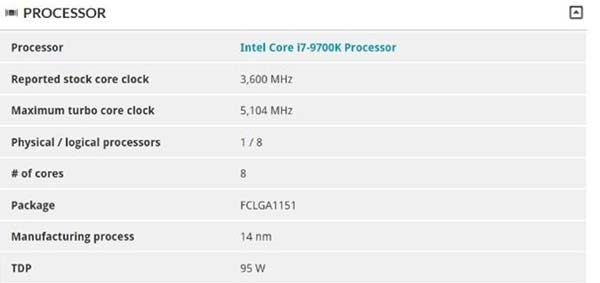
However, some users have managed to squeeze 5.1GHz out of the processor once overclocked. If you are interested in overclocking your processor, see our guide on how to overclock CPUs.
Intel has once again opted for the use of the Coffee Lake architecture in the i7 9700K. This means that there are no eye-brow raising moments when reading through the specs list.
Taking a glance through the specifications, we notice that not much has changed since the release of Skylake back in 2015. The only real difference we see is the hardware mitigations and soldered die for Meltdown and Spectre.
With the 9700K, Intel offers 512KB of L1 cache, 2MB of L2 cache, and 12MB of L3 cache. With the on-die cache presented in a familiar fashion to the 8700 and 6700.
When it comes to the platform, Intel’s memory controller’s feature two DDR4-2666 channels which will drive up to 64GB of non-ECC memory for enhanced speeds.
The PCIe 3.0 support stays at 16 lanes, with the chipset offering a further 24-lanes for additional performance.
When reviewing the chipsets, while the Z390 platform launched with the 9th generation CPU’s, it’s not an absolute necessity to get you up and going with a new system. But, if you are interested, we have reviewed a number of motherboards for the i7 9700K.
One of the more pleasing features of the i7 9700K is the fact that Intel made it backward compatible with all the 8th generation platforms. As a result, the Intel 300-motherboards work with this chipset.
Intel Core i7 9700K Performance

When it comes down to selecting a new CPU – what makes the difference is the performance.
So, with this factor in mind, how does the i7 9700K stack up to the competition, and what makes it the ideal chip for your new build or upgrade?
Is it the two extra cores that give this CPU some extra punch to its performance? Or does the lack of hyper-threading make a significant slow-down in speed?
As you can probably guess, in our experience its more cores that make the difference.
When reviewing the chip, we weren’t especially blown away by the performance compared to the 8700K.
In fact, the differences were barely noticeable at all.
During our testing, we ran the 9700K through its paces on Far Cry 5 and Assassin’s Creed Odyssey to test the benchmarks.
Only on one or two occasions did we manage to top the i7 8700K performance by a few frames per second.
When looking at the benchmark scores, we estimate that the 9700K offers a 4-percent overall improvement over the 8700K – that’s not really much to write home about, is it?
While we’re talking about benchmarks and averages, it’s probably a good time to note that the 9700K gets within 0.3-percent of the parameters for the 9900K as well.
Maybe the hyper-threading isn’t as important as we thought when it comes to performance benchmarks.
When we look at the performance stats, the 9900K fell behind the 9700K in a few areas, but we believe that’s a representation of current games and their unwillingness to use all cores during operation.
All in all, we think that buying a multi-core processor solely for gaming purposes may require the gaming industry to step up and meet the new processing performance benchmarks.
At the moment, we think that if a gamer is looking at purchasing a 9th generation CPU in the hope of improving their experience, we would rather see them spend the money on a top-quality GPU instead.
However, we find that the i7 9700K performance starts to become noticeable when the system workload increases.
When workloads begin to favor more cores in the chips, that’s when the 9700K starts to make a difference – but, a negligible difference at best.
The Final Verdict
With the i7 9700K, Intel finds itself in a bit of a precarious position.
The 9700K is clearly not the same machine with the same capabilities as the 9900K. The 9900K wins hands down in most applications when testing benchmarks, albeit by a nose.
Furthermore, the 9900K chip is still the powerhouse platform on offer from Intel. We believe that anyone looking to purchase the top-flight offering from the manufacturer will most likely settle on the 9900K.
Even if it costs a bit more money to buy the 9900K, the market will find a way to justify the additional purchase price. Whether it be the extra silicone or the hyper-threading.
The i7 also doesn’t offer the best value for high-end gaming chips either.
We find that the 8th generation 8700K does an excellent job of running any graphics-intensive applications, provided you have the right GPU.
However, while the 8700K may get the job done, and it’s at a lower price point than the 9700K, we think that the 9700K is the superior chip for gamers.
Looking at the benchmarks, it’s evident that the 9700K is the better option – even if it’s only by a nose.
However, we think that once the supply of 8700K processors reaches its current stock limits, Intel will make the switch to offer the 9700K as the de facto choice for gamers. But we think we are still some time away from this change in direction occurring.
At the moment, your choice between an 8700K and a 9700K depends on whether or not you believe in future-proofing your system.
The performance of the 9700K is not far off the 9900K either, with negligible differences in overclocking and frequency.
This situation leaves us with the conundrum of whether or not you need the 9700K, or the 9900K, and if you can justify the additional expense on your rig.
On a final objective outlook, we feel that you could get everything you need from a straight 6-thread, 6-Core i5, then take your savings and spend it on a top-quality graphics card to increase your gaming performance.
However, there is no denial this is a great CPU and if you opt for this option you will need to find a good i7 9700k cooler.
Related posts:
The best motherboards for the i9-9900k

